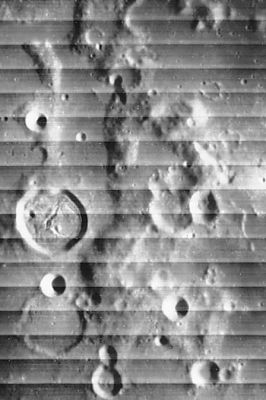Montes Pyrenaeus
Contents
Montes Pyrenaeus
(formerly Pyrenees (Mts.))
|
Lat: 15.6°S, Long: 41.2°E, Diam: 164 km, Height: 3 km, Rükl: 58 |
Images
LPOD Photo Gallery Lunar Orbiter Images Apollo Images
- The northern part of the Montes Pyrenaeus was photographed during the mission of Apollo 8. This frame (AS8-13-2227) also shows the east-southeastern part of nearby Gutenberg (near the frame's lower margin).
Research: Danny Caes
HiRes scan of Apollo 8 photograph: David Woods and Frank O'Brien (Apollo 8 Flight Journal).
Maps
(LAC zone 79C4) LAC map Geologic map
Description
Description: Elger
(IAU Directions) THE PYRENEES.--on the eastern side of the Mare Nectaris, extend in a meridional direction for nearly 190 miles, and include a peak west of Guttemberg of nearly 12,000 feet, and are traversed in many places by fine valleys.
Description: Wikipedia
Additional Information
Depth data from Kurt Fisher database
- Viscardy, 1985: 3 km
- Cherrington, 1969: 1.85 km
Nomenclature
- Named from terrestrial Pyrenees.
- Maybe we could call the highest peak of the Montes Pyrenaeus the Aneto or Pico d'Aneto, because in the terrestrial Pyrenees the highest peak is also called the Aneto. - DannyCaes Nov 17, 2013
LROC Articles
Montes Pyrenaeus meets Mare Nectaris
Bibliography
